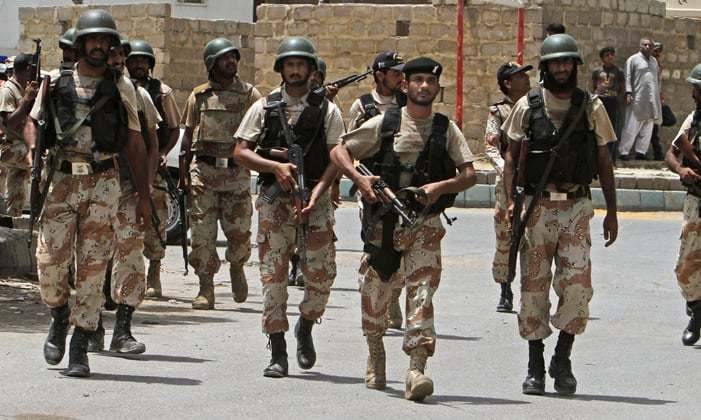Another quick fix that the government seems to be mulling, and is already putting in action, is a Rangers operation in Punjab. While the idea that the Rangers can put an end to crime and killing gives comfort to the panicked masses, the simplistic solution does not specify what the operation should be, and what areas of domestic security and policy making will be deferred to the Rangers. According to Former Inspector General Shaukat Javed, the “military or paramilitary forces are called in only when there is insurgency or when the enemy has occupied any part of the country, which is not the case at present. Peacekeeping in settled areas is the police’s job and they should be allowed to perform it.”
Within a few days of the blast on Mall Road in Lahore, the police and the Counter-Terrorism Department had arrested those responsible. While it can be admitted that Punjab Police has a long way to go in busting criminal mafias, especially in southern Punjab, there may be no clear need for the Rangers, and it seems there is no assessment of what the dangers in Punjab are and what parts of Punjab need deployment.
The danger of asking the military to step in, is that once present, they cannot be asked to leave. The security system, once it changes tracks, becomes reliant on the institution, weakening police control and their image for criminals. Public fears of what will happen when the Rangers leave make the civilian set up loath to remove the paramilitary force over fears of popularity and what a reprisal of attacks will do to their vote banks. It is certain that once the Rangers exit Karachi, whenever the operation wraps up, there will be a reprisal, one that the Sindh Police will not be able to deal with after the institutional shift. Rather than strengthen the civilian system, we continue to divert our efforts to military actions. The military is our strongest institution, yes, but rather than emulate their model, civilian forces keep transferring their problems to them.
For a durable peace, the police need to be given a free hand and a briefing on what is required in the province. Political interference has to stop. They can do what the Rangers can do, but only if the civilian government has the will.
General Kiyani once said that even the total success of military operations will only lead to a 20 or 30 percent success in counter-terrorism. The remaining depends on the civilian government, for it has to ensure that there is no loop remaining that feeds terrorist ideology. This means maintaining law and order, ending corruption, cracking down on hate speech, ending dealings with extremist religious groups, cracking down on unregistered and non-compliant seminaries etc. Yet the government looks to military courts here and Rangers there. Its job is to govern rather than delegate responsibility.






